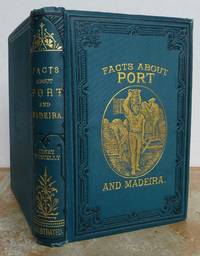
1844 - A letter from an Army officer who resigned his commission to become one of the very first American missionaries in China relating his initial impressions upon arriving in Macao in route to Ningbo
by Michael Simpson Culbertson
- Used
- Very Good
- Condition
- Very Good
- Seller
-
Virginia Beach, Virginia, United States
Payment Methods Accepted
About This Item
Culbertson graduated from the U. S. Military Academy at West Point in 1835 and was commissioned as an artillery lieutenant. He was assigned to duty at Rouses Point, New York, to guard against a possible British invasion across Lake Champlain and served in the Aroostook War, a pseudo-conflict that led to the definition of an official border between Maine and Canada. He resigned his commission in 1841 to study theology at Princeton.
Culbertson was ordained as a Presbyterian minister in 1844 and sent to serve at Ningbo, China by the American Presbyterian Mission accompanied by his wife, Mary. The couple arrived in route at Macao, and found it was too late in the season to travel north until the following year. This letter provided Culbertson's initial impressions of Macao as well as his hope that his father did not think he was throwing away his life.
"We arrived in Macao roads on the 22d October just four months after leaving New York. . .. We were exceedingly rejoiced when we saw the white houses of Macao and heard the order to drop our anchor. . .. We have arrived here in the season most favorable to health - have had most charming weather. . .. I am afraid this is rather too favorable introduction to missionary life on account of the long residence of Europeans in Macao there are many little comforts to be obtained here which we cannot look for when we reach the field in which we expect to be finally placed. I hope you will not look upon us as entirely beyond the bounds of civilization, for I assure you the good people of Macao would feel exceeding indignant at any such stigma upon their character. Our house is so far like our own houses in America that when quietly seated in our own little study we can almost fancy ourselves still in our own U.S. . . .. The only thing which reminds us that we are in a foreign land is the strange sounds from without which constantly salute our ears. . .. to remind us that we are strangers in the land [like the] unearthly cries of the hucksters and of the 'keepers of the walking eating house,' who pass through the street with a long bamboo over their shoulders from each end of which is suspended a basket containing their wares. . .. At every step we are . . . in the midst of a strange people - a very strange people - the antipodes of ourselves. The winding narrow streets are crowded with Chinamen with their dark features, and heads shaved perfectly bare except a circular spot around the crown, and with their long jet black cues dangling . . . to their heels. The streets too are so entirely different. . .. They are generally not more than from six to eight or ten feet wide and on each side are high stone or mud walls through which you sometimes enter by a gate to get access to the houses or it may be, as is the case with our house, you enter through a wide front door opening upon lower story or basement from which you ascend to the second story by very wide low and broad steps. The basement is not floored and is the part appropriated to the servants. I allude now to the Portuguese houses or those built by foreigners. . .. "
He also reports that the island has affected the health of the women in their party.
"I had hoped to be able to write to you more fully but I really have not been able to do it. I had much to do after we landed to get all our household arrangements made and they were hardly finished when Mary was prostrated upon her back from the affect of too much exertion I have not been able to procure a nurse for her so have therefor been much confined with her myself. She is now in a very fair way for recovering. It requires great care especially for females, to preserve health in this climate. There is great danger from over exertion. This has been the cause of the ill health of nearly all the ladies who have been obliged to return home. . .."
And lastly, he worries about what his father may think of his becoming a China missionary.
"I hope you will not look upon me as throwing away my life in China. If I consulted merely my own happiness I am sure I shall have greater enjoyment here that I could at home because I am convinced that I am in the path of duty."
. Presbyterian missionaries were among the very first to arrive in China following the forced opening of five port cities after the British victory in the Opium Wars. The Presbyterians chose to begin their effort in Ningbo, and they persevered despite lingering animosity regarding the Chinese defeat. Divie Bethune McCartee, a medical missionary, was the first to arrive in 1884, and he was followed 1845 by more who established a church, schools, and begun a revised Chinese translation of the Bible. Culbertson, who was one of this group, went on to spend the next 15 years in China at missions in Ningbo and Shanghai. He was well respected and an important contributor to the translation committee, producing a revised Chinese edition of the Old Testament. After Culbertson died from Cholera in 1862, his wife brought his remains back to the United State for internment at Gettysburg, and she established a home for their two daughters in Brooklyn.(For more information, see "Death of Rev Simpson Culbertson, D.D." in the 15 No 1862 edition of Gettysburg's Adams Sentinel, "Michael Simpson Culbertson" at Wikipedia, and Li's "Speaking to the wind": American Presbyterian missionaries in Ningbo from the 1840s to the 1860s.)
Exceedingly scarce. At the time of this listing, no correspondence from this first group of American missionaries is for sale in the trade, and the Rare Book Hub shows none have appeared at auction. Likewise, no similar correspondence is held by institutions per OCLC, however the one missionary's journal from 1845 to 1847 is held by the Winterthur Museum, Garden, and Library. Also, Worthpoint reports that an 1848 letter from a Presbyterian minister who arrived in 1846 and expanded the mission's footprint to Canton sold for nearly $1,500 on in 2013.
.Reviews
(Log in or Create an Account first!)
Details
- Bookseller
- Kurt A. Sanftleben, LLC
(US)
- Bookseller's Inventory #
- 010265
- Title
- 1844 - A letter from an Army officer who resigned his commission to become one of the very first American missionaries in China relating his initial impressions upon arriving in Macao in route to Ningbo
- Author
- Michael Simpson Culbertson
- Format/Binding
- Envelope or Cover
- Book Condition
- Used - Very Good
- Quantity Available
- 1
- Place of Publication
- Macao
- Date Published
- 1844
- Bookseller catalogs
- Philately;
Terms of Sale
Kurt A. Sanftleben, LLC
Sales tax of 6% required for books shipped to addresses in Virginia. Standard domestic shipping is free, however additional fees may be required for heavy, oversized, or unusually-shaped items.
Returns accepted for any reason for a full refund (less shipping) if we receive the return within 14 days of shipment and items are received in the same condition as sent. Advance notice of any return would be appreciated.
About the Seller
Kurt A. Sanftleben, LLC
About Kurt A. Sanftleben, LLC
We also have a nice selection of unusual ephemera and postal history items in stock as well.
Member: Antiquarian Booksellers Association of America, Ephemera Society, Manuscript Society, American Stamp Dealers Association, American Philatelic Society, U.S. Philatelic Classics Society, Military Postal History Society
Glossary
Some terminology that may be used in this description includes:



